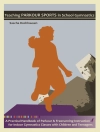In ‘Euclid and His Modern Rivals’ by Charles Lutwidge Dodgson, commonly known as Lewis Carroll, readers are taken on an intellectual journey through the history of geometry and mathematics. Dodgson meticulously dissects Euclid’s classic ‘Elements’ and compares it to the work of other mathematicians, challenging traditional views and presenting innovative ideas. The book is written in a scholarly yet accessible style, making complex mathematical concepts understandable to a wide range of readers. Dodgson’s witty and insightful commentary adds a layer of entertainment to the academic content, making it a captivating read for both scholars and enthusiasts of mathematics. Set in the context of the Victorian era, ‘Euclid and His Modern Rivals’ reflects the intellectual curiosity and vibrancy of the time, shedding light on the evolution of mathematical thought. Charles Lutwidge Dodgson’s background as a mathematician and logician undoubtedly influenced his exploration of Euclid’s work and the subsequent modern interpretations, making this book a valuable contribution to the history of mathematics. I highly recommend ‘Euclid and His Modern Rivals’ to anyone interested in the intersection of mathematics, history, and intellectual discourse.
लेखक के बारे में
Charles Lutwidge Dodgson, better known by his pen name Lewis Carroll, was a distinguished English writer, mathematician, logician, Anglican deacon, and photographer. Born on January 27, 1832, in Daresbury, Cheshire, Dodgson carved a niche for himself in both the literary and academic worlds. Although widely celebrated for his classic children’s literature, such as ‘Alice’s Adventures in Wonderland’ and ‘Through the Looking-Glass, ‘ his contributions to the field of mathematics are equally noteworthy. Among his mathematical works, ‘Euclid and His Modern Rivals’ (1879) is a notable defense of Euclidean geometry. In this text, Dodgson employs his signature wit and a dialogic style to examine and critique the non-Euclidean alternatives proposed during the 19th century. His scholarly approach reflects Dodgson’s profound understanding of mathematical concepts and his ability to articulate complex ideas with clarity and elegance. His literary output is marked by imaginative invention, playful use of language, and a fondness for the absurd, elements which often seeped into his rigorous academic treatises. Dodgson’s multifaceted career at Christ Church, Oxford, as a lecturer in mathematics, allowed him to influence a generation of students and scholars. His work continues to be appreciated for its contribution to mathematical logic and pedagogy, as well as for its literary genius.












